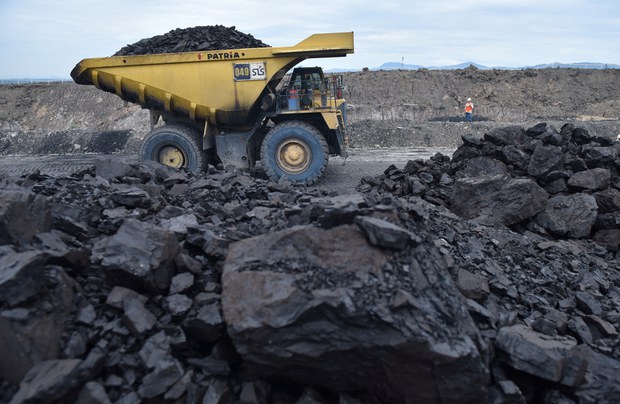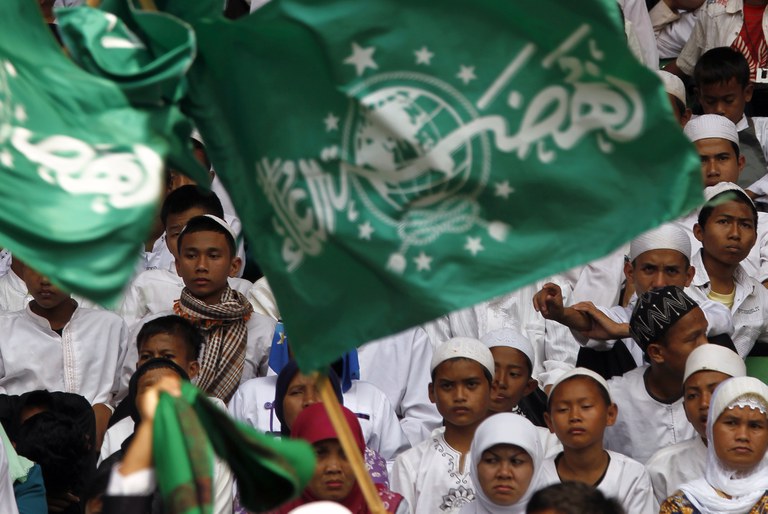Indonesian environmentalists slam law allowing religious groups to manage mining areas
2024.06.03
 A truck carries coal at PT Adaro Indonesia coal mining in Tabalong, Kalimantan island, Indonesia, Oct. 17, 2017.
A truck carries coal at PT Adaro Indonesia coal mining in Tabalong, Kalimantan island, Indonesia, Oct. 17, 2017.
Indonesian environmental advocates have criticized a law change giving religious organizations permission to manage mining concessions revoked from companies, saying the groups’ inexperience in responsible mining practices poses a risk to nature.
President Joko “Jokowi” Widodo, who is due to leave office in October, signed the decree last week as a gesture of appreciation for the contribution made by religious groups to Indonesia’s independence struggle, said Investment Minister Bahlil Lahadalia.
The regulation follows an announcement by Jokowi’s administration in 2022 that it was canceling millions of hectares worth of mining and plantation permits because development of the concessions was moving too slowly.
Bahlil said religious organizations were granted permission to take over concessions on the grounds it would help improve community welfare.
But some environmental advocates have expressed concern that groups like Nahdlatul Ulama (NU) lacked the requisite expertise. Others see the policy as yet another example of transactional politics.
Fahmy Radhi, an energy economist at Gadjah Mada University in Yogyakarta, said the government’s decision was a blunder.
“Religious organizations do not have the capacity for exploration and exploitation. I am sure they also do not have the funds for mining investment,” Fahmy told BenarNews.
Trubus Rahadiansyah, a policy analyst from Gadjah Mada University, said the new regulation was nothing more than Jokowi thanking his religious backers.
NU, Indonesia’s largest Muslim organization with about 100 million followers, said the law change would encourage religious groups to be more involved in the public sphere.
“This policy is a bold step and an important breakthrough to expand the use of natural resources controlled by the state for the direct benefit of the people,” Yahya Cholil Staquf, NU’s general chairman, said in a statement on Monday.

NU Deputy Chairman Ahmad Suaedy said the policy was a “breakthrough in Indonesia's democratization process.”
Suaedy said religion in Indonesia – the world’s largest Muslim-majority nation – had been marginalized by liberal democracy.
“The granting of natural resource concessions by the government to Islamic groups is part of post-secularism, where religion has space in the public and governmental spheres,” he told BenarNews.
Suaedy acknowledged the criticism from activists and observers concerned about NU’s inexperience in the mining industry, but said “irregularities can be committed by anyone.”
Indonesia has enormous mineral wealth spread across its more than 70,000 islands but lax enforcement of environmental standards in some areas has led to degradation of the natural landscape, biodiversity loss and pollution.
The Communion of Churches in Indonesia (PGI) said the government had demonstrated its commitment to involving as many people as possible in managing state assets.
“Of course, the president’s initiative is not easy to implement due to the limited knowledge of religious organizations regarding the mining industry, but I believe that religious organizations can overcome the burdens,” PGI chairman Gomar Gultom told BenarNews.
Muhammadiyah, the nation’s second largest Islamic organization with about 60 million members, said it would not rush to respond to the government's initiative.
The group's General Secretary Abdul Mut’i said it would weigh its capabilities in mining exploration to avoid problems for the organization, public and nation.
Pizaro Gozali Idrus and Ismira Lutfia Tisnadibrata in Jakarta contributed to this article.







